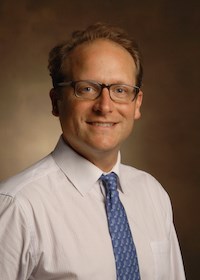Dr. Edwin Williamson is an assistant professor of psychiatry and the director of the Child and Adolescent Psychiatry Fellowship Program at Vanderbilt. He first came to the university in 2010 and is now entering his second year as the Hank faculty Head of House on the Ingram Commons. The Hustler spoke with Dr. Williamson about what drew him to the residential learning community and what it’s like raising a family on a college campus.
Vanderbilt Hustler: How did you find out about the Head of House opportunity?
Dr. Edwin Williamson: Well, I started with Visions – I did Visions/VUCeptor for a few years. I heard about it from a friend of mine who also did it and I think Vanderbilt is unique in welcoming faculty from all over the campus to work with undergraduates.
VH: When did you decide to be a Head of House?
EW: I first had this inkling when I was in my child and adolescent psychiatry fellowship at Yale and Yale had what at the time they called Master of the Colleges (now Dean of the Colleges), where the residential colleges each have their own dean. So when I was a Yale, there was a psychiatrist who was a dean of one of the colleges and I was like oh, a doctor could be involved in the life of undergraduates…that sounds really interesting to me.
VH: What brought you to Vanderbilt? Was it just a coincidence that we also have a Head of House opportunity?
EW: Well I had a good job opportunity coming out of Vanderbilt coming out of fellowship. I didn’t come here for the opportunity for the Head of House opportunity – I came here for the medical center – but it’s been a nice perk.
VH: Moving into a college dorm – how did that go with the family when you pitched it?
EW: My wife is an Episcopal priest and she’s worked in college spiritual development a lot, so she was interested in working with children. Our boys didn’t really know what to think about it – but they now like it a lot.
VH: What’s something that’s different about Vanderbilt–compared to past colleges you’ve been to?
EW: Having been at Columbia, Duke, Berkeley, UCSF, Yale, the thing that I really appreciate is the “one Vanderbilt”–that the ten schools are within walking distance and are on the same campus. I think that for someone like me in the medical center–to be able to interact with undergraduates in this way is really nice. I think about other universities, like UCSF, they don’t have undergraduates. Yale–it’s only separated by a highway and about a mile–but that’s a big difference–you can’t really walk to a lecture if you’re in the medical center. I like that with one Vanderbilt–all that schools on one campus.
VH: What is the most rewarding experience you’ve had as a Head of House?
EW: The most rewarding thing is working with the students–and that’s what I thought–so it wasn’t surprising. The surprising thing was working with the RAs. I hadn’t really thought about the RA structure and the important role of the RAs. I met with the RAs every week and appreciated their management of the relationships in the house. I got really close with them and the HAC. I didn’t know how much about how the houses ran. To work closely with the HAC and RAs, that was surprising.
VH: Any other surprises you’ve had living in a college dorm?
EW: It’s not shocking, but it’s a much more public life than the life I led living in a house off campus where I could walk out to get the newspaper in a bathrobe. I walk out of my house and I’m in the middle of a college campus – that is again, why I do it, but it’s the most different aspect of my life. In terms of the work with students, that isn’t the new part of living there, but the physical-ness of walking out of your living space to a college campus is quite radical. It’s 90% fun.
VH: How is it raising your children at Vanderbilt?
EW: They’ve loved it. They love running around Commons, the quads, meeting undergraduates. When I think all of the things they’ve learned about, what are all these student orgs, learning about what different people do on campus–Vanderbilt is more diverse than its surrounding neighborhood so they’re put into a microcosm of a much more diverse world than West Nashville as a whole so that’s a really cool aspect. Having 20 international students in their house, it’s new.
VH: From your perspective as a psychiatrist, do you notice anything new after living with students?
EW: Because my academic interest is so related to being a head of house (most faculty head of houses have unrelated disciplines), my academic interest is in psychological transitions. This is a major transition, leaving home for the first time and entering a new phase of life. It’s hard to paint a single stroke of Vanderbilt freshmen because they’re incredibly diverse and at different states of psychological development. I do think there’s a reflection in the national state of anxiety that is the current generational issue. The common response to how are you doing is “I’m stressed” or “I’m busy.” Our current state is the “United States of Busy-ness.” At an elite, high achieving place like Vanderbilt you get a concentration of that.
VH: What’s new heading into your second year?
EW: It’s a lot better – I’m a lot more familiar with how things work. I’ve been able to worry less about the upcoming thing and live in the moment a bit more. I can’t wait for this year has in store for me.

